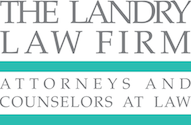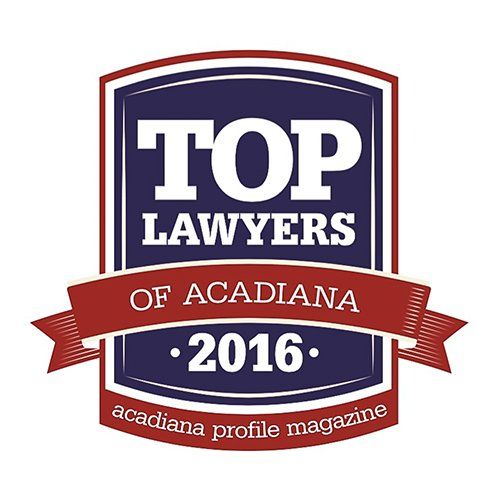Handling Your Needs Aggressively and Professionally.
Bankruptcy FAQ’s
WHAT IS CHAPTER 7 BANKRUPTCY?
A chapter 7 bankruptcy is also known as a debt liquidation. It wipes out all of the debt that the law permits to be discharged.
Chapter 7 bankruptcy is designed as an orderly, court-supervised procedure by which a trustee collects the assets of the debtor(s), reduce them to cash, and makes distributions to creditors, subject to the debtor’s rights to retain certain exempt property and the rights of secured creditors.
Because there is usually little or no nonexempt property in most Chapter 7 cases, there may not be an actual liquidation of the debtor’s assets. These cases are called “non-asset cases”. Usually a debtor with assets that they wish to keep and that are not covered by exemptions file Chapter 13 bankruptcy.
WHAT HAPPENS IN REGARDS TO HOME MORTGAGES, CAR LOANS, AND OTHER SECURED DEBT?
When you borrow money and give the lender a mortgage or lien on your property, you have a secured debt. If the money you borrowed was used to purchase the secured property, the lender is entitled to recover the security if you file a chapter 7 bankruptcy.
The debt will be discharged – you will not owe any additional money to the creditor – but unless you take additional steps, you will lose the property. If you have a mortgage loan, the lender will eventually be allowed to foreclose your mortgaged home/property. If you took out a car loan and gave a lien on the car to the lender, the lender will eventually be able to repossess the car. You can always choose to surrender the property rather than dealing with the hassle of a foreclosure or repossession.
You do have alternatives under Chapter 7 that allows you to retain your secured property. Before you file a Chapter 7 petition, you can negotiate with the lender to reaffirm the debt. The lender may be willing to extend your loan so that the payments are more affordable. The lender might also be will to rewrite the loan to include delinquent payments in the new loan balance.
If discharging your other debts will free up the funds you need to make payments on your secured debt, the lender might agree to reaffirm your loan despite your bankruptcy filing. This is known as a reaffirmation agreement. It is important that you negotiate with your lender before you file bankruptcy, because it is more difficult to negotiate the terms of a reaffirmation agreement after you file your chapter 7 petition.
Another alternative allows you to keep your property if you pay its current value to your lender. For instance if you owe a $5,000 balance on a car that is only worth $2,000 due to depreciation, you can keep the car by paying a lump sum of $2,000 to your lender.
WHAT ABOUT UNSECURED DEBTS?
Most debts you owe that are not secured by collateral, including most credit card debt, can be fully discharged in a chapter 7 bankruptcy. Some loans for which you gave collateral might also be treated as unsecured if you did not purchase the collateral with the loan proceeds.
WHAT DEBTS CANNOT BE DISCHARGED THROUGH BANKRUPTCY?
Some debts cannot be discharged in a chapter 7 bankruptcy, including most taxes, judgments for damages resulting from drunk driving accidents, alimony and child support arrearages, and students loans pending an exceptional circumstance.
WHAT IS CHAPTER 13 BANKRUPTCY?
A chapter 13 bankruptcy is also known as a debt repayment plan. While a chapter 7 bankruptcy wipes out the debt, the debtor who files a chapter 13 bankruptcy makes payments to a bankruptcy trustee over a period of three to five years. During that time, the debtor catches up on payments of the debtor’s secured debt and pays as much of the debtor’s unsecured debt as the debtor can afford.
When the plan is completed successfully, all unsecured debts are discharged.
WHAT ARE THE REASONS FOR CHOOSING A CHAPTER 13 BANKRUPTCY?
Some people may not be eligible to file a chapter 7 bankruptcy. If their income relative to their expenses is large enough to permit them to make monthly payments to their creditors as determined under the “means test”, the only bankruptcy available to them is a chapter 13 repayment plan.
However, even if an individual is eligible to file Chapter 7, it may be in their best interest to file Chapter 13 based on the following benefits of Chapter 13.
- Repayment of non-dischargable debts.
- Some kind of debts generally cannot be dischargable under Chapter 7. (Student loans, child support arrearages, taxes, etc.) Chapter 13 allows you to repay those debts over a period of years.
- Avoiding foreclosure and/or repossession
- If you fall behind on your mortgage or car loan and are facing the possibility of foreclosure/repossession, a chapter 7 bankruptcy might not help you keep your property. A chapter 13 plan can put collection efforts on hold to give you a chance to make up missing payments and keep your house or vehicle.
- Protecting co-borrowers
- If someone co-signed a loan that you discharge under Chapter 7, your co-debtor(s) can usually be held responsible for the balance of the loan. Including the debt in a chapter 13 plan can prevent the creditor from pursuing your co-signor for repayment of the loan.
- Repaying debts that are important to you
- Sometimes debtors do not want to wipe out their debt. They like to know that they have made their best effort to pay their debts, particularly if they owe money to friends, family members, or businesses with which they want to maintain a good relationship.


